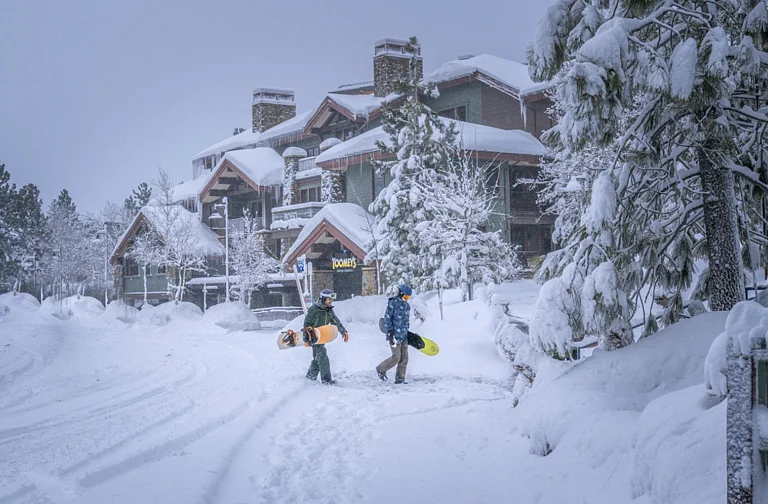California found itself buried under more than 100 inches of snow in just four days at the beginning of March, thanks to an epic blizzard. While this massive snowfall may temporarily ease concerns over the state's snowpack and water supplies, experts warn that the underlying issue of climate change continues to loom large, reported CBS News.
According to Dr. Andrew Jones, a climate scientist at the Lawrence Berkeley National Laboratory, the recent blizzard likely has ties to climate change. Despite expectations of diminishing snowfall in California due to a warming planet, this extraordinary storm contradicts those assumptions.
"This was a very interesting storm to me," said Dr. Jones, whose research focuses on hydroclimate extremes and snow dynamics.
The dynamics of this blizzard are intriguing. Cold arctic air travelling from the Bering Strait collided with the warming Pacific Ocean, which has been influenced by climate change. As a result, the storm system became warmer and wetter, despite remaining below freezing temperature. The warmer atmosphere can hold more moisture, contributing to the intensity of the storm.
Dr. Jones emphasized the need to monitor the snowpack closely, especially given recent global temperature trends. February marked the ninth consecutive month of record warmth globally, raising concerns about faster snowmelt and its impact on water resources.
"While this snow may provide temporary relief, we must remain vigilant," warned Dr. Jones. He expressed hope for implementing new strategies to manage excess runoff and recharge aquifers but stressed the urgency of addressing climate change.
"It's not too late to slow down climate change," Dr. Jones asserted, emphasizing the importance of preparation and adaptation to the changing climate.




























